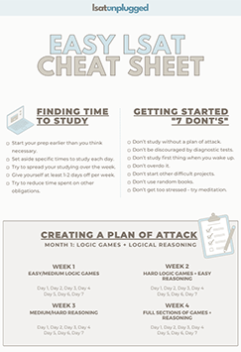I interviewed Anna Ivey, a law school admission consultant, via email. Our discussion follows.
In one blog post, you write, “Most ABA-approved law schools are not worth the investment.” This is a rather shocking statement. When I first read it, I thought you made a typo and that you’d meant to say “most non-ABA-approved schools…” In your opinion, what conditions must be met for a school to be worth the investment?
I know it’s strange for people to hear that opinion, because there are so many people out there who want to go to law school at any cost. There are also a lot of well-intentioned parents and pre-law advisors who treat a law degree as an all-purpose degree that’s suitable for anyone.
But law schools aren’t all the same, and they don’t set graduates up for the same kinds of opportunities or income streams, on average. I would never say to someone, “Don’t go to school X, ever,” because some people really are just looking for the intellectual challenge, or to acquire a particular skill. And that’s fine if money is no object, but for most people it is. For that reason, I encourage people to be rather ruthless in their cost-benefit analysis, and to be honest with themselves about the risks and costs involved.
At a very basic level, I don’t think a particular law school program makes sense if it doesn’t set up its graduates with decent odds to carry the loans they’ll have to take out in order to attend. What people end up paying to go to law school varies tremendously, so each person has to make his own assessment about projected income vs. loan carrying costs. Many applicants are not realistic about what kinds of salary prospects they’ll have coming out of a given program, or how far up the class rankings they’ll need to be to make the kinds of salaries they’re expecting to earn. If you have to be in the top 10% of your class to make the six figures you’ll need right out of law school to start paying back your loans, that might be too risky a proposition, for example.
I’m actually not alone in having these reservations. If you look at some of the blog postings I’ve written over the years (here), I’ve referred to a front-page article in the Wall Street Journal as well as a law school dean who said, to his credit, that law schools should be ashamed of themselves if they take students’ money without giving them good enough job prospects to justify that expense. Let me quote the dean of New York Law School:
“We should be ashamed of ourselves. We own our students’ outcomes. We took them. We took their money. We live on their money to pay to come to San Diego [where the conference was held]. And if they don’t have a good outcome in life, we’re exploiting them….Maybe the chance at being in the top 10% is not a good enough lottery shot in order to effectively spend $120,000 and see it blow up at the end of three years of law school.”
That’s powerful language, right?
There’s also a really interesting chart put out by NALP, the Association for Legal Career Professionals (don’t ask me why their acronym doesn’t match their name; go figure). If you look at the chart for graduates from the class of 2007, the line showing the salary distribution is pretty odd looking, with two peaks:

Here’s what NALP says about that chart:
What this image makes visually manifest is the two very different legal employment markets that law school graduates face. While 16% of starting salaries were $160,000, far more, 38%, were $55,000 or less. The first peak in the graph reflects salaries of $40,000 to $60,000, with salaries of $40,000 and $50,000 each accounting for about 10% of salaries. Collectively, salaries in the $40,000 – $60,000 range (approximately the total area reflected under the left peak) accounted for 42% of salaries. Salaries reflected under the right peak, including the smaller bulge over $145,000, accounted for 22% of salaries.
Mind you, this was before BigLaw (the firms that pay the big bucks right out of law school) started imploding, laying off attorneys, and instituting hiring freezes (take a look at Above The Law if you want the grim and gory details), so that second peak for the class of 2009 might not look as rosy when the chart for 2009 eventually gets released. But in any event, most applicants I talk to don’t think they’re going to be the ones making $55K or less, and if they’re taking out substantial loans, that’s a tough way to go financially.
Along the same lines, what about applicants for whom the legal profession is a lifelong dream? Wouldn’t you agree that not everything about one’s career can be measured in dollars?
I’m very sympathetic to people who have dreamed their whole lives of going to law school. Of course not everything can be measured in dollars, but a law degree is a financial investment, among other things, and the math has to make sense no matter what your motivations are for going to law school. Applicants need to be realistic about what they’re getting themselves into. I know it’s not pleasant to hear “this might not make sense for you,” or “this might not make sense for you given these factors,” but I would argue it’s better to do that analysis before making that big investment than afterwards.
I also feel an ethical obligation to be honest with people about their prospects, just as I would want someone to be brutally honest with me if I woke up one day and said, “hey, I know I’m pushing 40 and I can’t touch my toes on most days, but it’s been my life-long dream to be a professional ballet dancer. Will you help me spend six figures to pursue that dream?” If that ever happened, I hope someone would sit me down and have a very candid talk with me.
I also encourage people to get their feet wet in the legal world in some capacity before jumping into law school. They might have dreamed their whole lives of becoming lawyers, but many people have no realistic idea about what kinds of things lawyers do all day long, or what the different trade-offs are. Popular culture dramatizes and romanticizes lawyers all the time, so I understand the seduction of the law. But as with anything, real life is usually very different, and aspiring law school applicants owe it to themselves to have some understanding of what they’re getting themselves into. Obviously you can’t go out and practice law before you have a law degree, but you can observe a lot about the profession and different options out there even if you’re just temping for a legal staffing firm in an administrative capacity, or you’re volunteering for a non-profit legal aid clinic a few hours a week. Seeing legal practice up close and in real life can be a very clarifying experience, whether you end up loving it or hating it or just seeing some other side of it that you hadn’t known about before.
What are some examples of addendum topics that applicants should avoid?
I find LSAT addendum essays the least helpful, simply because you can always take the test again if you really believe that your current score isn’t accurate, or you had a bad day, or the proctor screwed up, or whatever. Of course that assumes that you’ve planned ahead sufficiently to give yourself opportunities to take the test multiple times before you apply, but “I didn’t plan ahead properly” is never a good argument to make in an addendum either.
In contrast, GPAs and transcripts can sometimes benefit from explanation. Admissions officers can’t read minds, so if there’s some kind of rocky patch in your transcript, and there’s a backstory there that you think they should know about, that kind of addendum can be helpful. Not everyone with a rocky transcript has a good backstory, of course — some people don’t have very compelling reasons for why their transcripts look the way they do — so even GPA addendum essays require judgment. In my experience, many applicants want to submit addendum essays just to get something off their chests, but that doesn’t mean it’s always a good idea to send them in.
What are some examples of impressive extracurriculars within the reach of ordinary applicants?
There’s no right answer to that, because admissions officers don’t really have a list of preferred extracurriculars. What matters is quality of experience. They like to see that someone committed to the activity in a meaningful way, and took on additional responsibility over time. It’s always good to see demonstrated accomplishments and leadership. That’s very different from signing up for a bunch of activities and putting down “member” for each one — that’s pretty transparent, and admissions officers know that you don’t have to do more than sign up for an email list in order to do that. They’d rather see longer-term commitment and depth of experience in a smaller number of activities (or even just one) than breadth. Superficial participation won’t score you many points with admissions officers. For that reason, many applications ask you to list hours per week for activities — that gives admissions officers a sense of how committed you were (or not).
I’ve also heard from applicants who are worried that their list of activities is so slim, and often that’s because they were working paid jobs (whether they’re still in school or have already graduated). That’s OK. For the same reason, when you list your jobs, make sure to list hours per week. That gives the admissions officer a sense of what your obligations were outside the classroom, and work experience is impressive as well. They look at your resume to get a sense of how you spend your time, whether it’s in activities or paid work, and they try to get a sense of what you’ve accomplished inside and outside the classroom given those various time commitments.
Anything else?
When I look at the recession, and how quickly the law firm landscape has been imploding and the business model changing, I like to remind applicants that a JD does not mean job security. In times past it did to some degree, but those days are gone and might never come back. Law school often attracts risk-averse people, so it can come as a shock to them when they realize that they’re not getting what they thought they were bargaining for. Law school applicants have to be prepared to be very entrepreneurial about their careers.
Anna Ivey is the former Dean of Admissions at the University of Chicago Law School and president of Anna Ivey Consulting. She and her team work one-on-one with applicants as they navigate the admissions process and chart their legal careers. She is author of The Ivey Guide to Law School Admissions and The Ivey Files blog.

